








Hello August! There is something about the month of August that always feels like we start a new beginning. Perhaps, it is because summer is coming to an end, and kids are going back to school.
Maybe it is because fall horse shows start to ramp up, and the last shows of the season have riders preparing to finish the year strong. Either way, August usually closes out a slower time of year when families and kids return from vacationing. Personally, I have a lot of excitement for the coming months. I will be transitioning my young horse, Kevin, home soon. With every ride, I feel I am regaining strength and confidence in the saddle, and my ground work skills are finally clicking and coming all together. I remember my older horse, Gage, when he was seven, and he was nowhere near as consistent or steady as Kevin. This has me excited for my future with Kevin and grateful that I trusted my gut instincts with this horse and
gave him a chance to show me his full potential while in training.
This last half of the year is going to be one I have been dreaming about for probably four years. It is hard to retire a horse due to injury or illness like I had to do. I knew I was going to give my older horse, Gage, a long and happy life whether I could ride him or not. I was not expecting a forced retirement when he was only 16. I put so many years into Gage, I got him when he was four turning five. I trained him completely, from hacking in open fields, to jumping, to even ground driving. I always wanted to turn him into a carriage horse when he was a senior, but he had to retire completely from all work. It was hard to lose that access to riding and to see your heart horse become yard art. I will admit, he is the most beautiful yard art I have ever seen. Yet, I have missed having a riding horse that I can jump on and forget the stresses of the day.
Riding has always been therapeutic for me, and not having that for the last six years has been really hard. Now, I feel I have a piece of my heart back with Kevin, and the realization of having him home and riding him multiple times a week has made my heart happy and fulfilled as an equestrian. I am looking forward to the physical benefits of being in the saddle at least three to five
times a week, but mostly the mental benefits. Winston Churchill was correct when he said, “ No hour of life is lost that is spent in the saddle.” Riding has always rejuvenated my soul and heart, and it gives me such an appreciation for the gift that horses are to me, my family and to society.
This month’s cover story by Alicia Johnson takes a closer look at Equine Assisted Therapy and Services and how horses have healing powers. The therapy and healing horses offer to people of all ages, from physical and emotional health issues and disorders, to addressing daily stress, anxiety and depression that affect all people, has been growing throughout communities.
We as equestrians know and understand how horses just make us feel good. What I ask of you is to help spread that with others outside our equine community. If you know someone who is struggling with day-to-day life, family illness, addiction, depression, or even overcoming physical ailments or trauma, share your personal experiences with horses with them, and tell them about equine assisted therapies and different places throughout our region that offer physical and mental health equine therapies.
We will be publishing a list of certified equine therapy programs on our website in August. This can serve as a directory
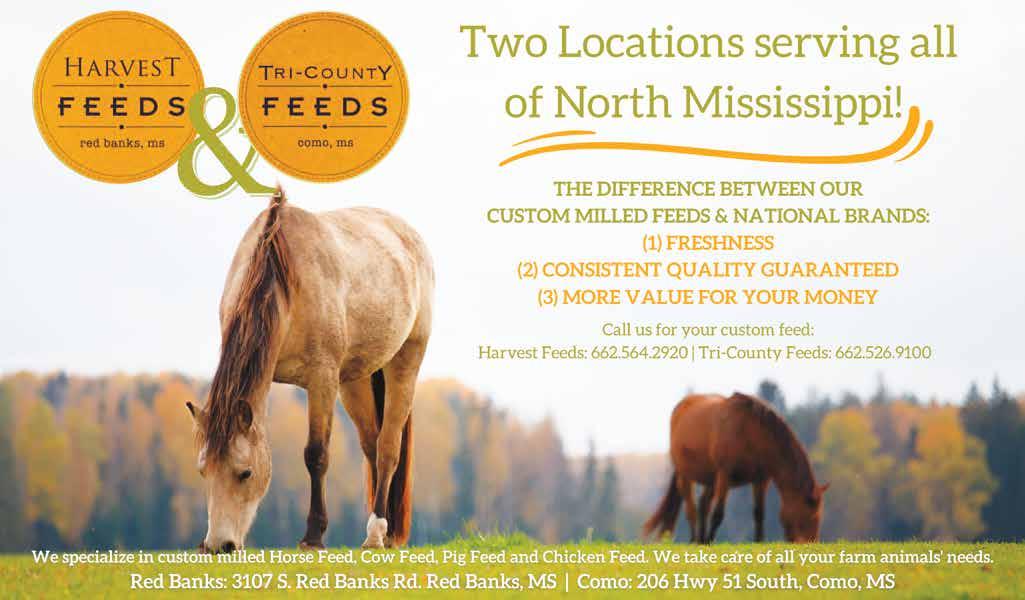
for anyone in need. I know, as I navigate through having elderly and sick parents and the grief of losing my own brother to depression and addiction, how difficult and ugly life can be at times. What I also know is how my horses have kept me strong and have helped heal my own wounds while teaching me how to cope following traumatic events in my own life.
This fall, when Kevin arrives home, I will be doing more than riding and progressing in our training together. Kevin will be helping me mend several breaks in my heart and help ease my anxieties I have that come with the stage of life I am currently in. If anyone is ever in need of a listening ear, or a calming place to come and unwind, please know my barn is open to you, and my horses would love to nuzzle you as well. I am happy and more than willing to help you find an equine assisted program and reassure you that everyone struggles, and everyone needs a helping hand at times. Horses can be an unconventional way to help heal emotional distress and disorders. If conventional talk therapy is something you feel ashamed to pursue, then come brush a horse and scoop some poop. There is nothing more therapeutic than that!
Lauren Pigford Abbott Publisher & Owner
The Mid-South Horse Review is pleased to announce the launch of the Horse Talk Podcast. The anticipated launch date will be the 3rd week of August. Lauren Abbott, Publisher of MSHR, will host Horse Talk and will have featured guests to help discuss current and timely topics.
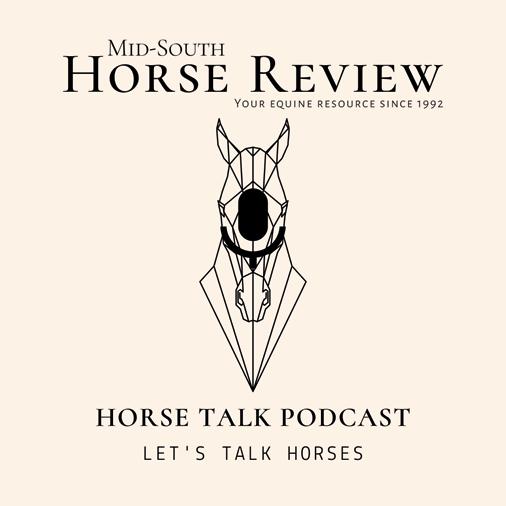
Episodes will air every other week and will cover an array of topics. Lauren will team up with Robyn Miller, Head Trainer and Owner of Point Pleasant Farm, to discuss all levels of horse training. Topics about health, nutrition, and management of horses and riders will also be covered, along with special episodes featuring female, equine business leaders. These female-led business episodes will discuss the challenges of being a female-led equine business and ways to help enhance an equine business brand and overall success.
Publisher, Lauren Abbott states, “I am excited for this new venture to reach additional horse lovers and owners. The Horse Review’s major goal is to help share horses with its community, and being able to reach new followers and subscribers through a podcast platform is exciting. This gives us a powerful way to deliver our content in print, digital and now audible platforms.”
Horse Talk Podcast will be accessible
through major podcast apps and on the Horse Review’s website: www.midsouthhorsereview.com. Readers and followers who wish to receive podcast updates can subscribe to the Mid-South Horse Review’s email newsletters, which can be done through MSHR’s website.
Aside from delivering content to MSHR’s readers and followers through a podcast platform, there will also be additional sponsorship and marketing opportunities available to collaborative equine businesses. If you are interested in learning more about exclusive sponsorships or available commercial advertising opportunities, or you would like to be a future guest or pitch episode content, please contact Lauren Abbott at labbott@mshorsereview.com
Open camera and scan QR code to subscribe to podcast updates:

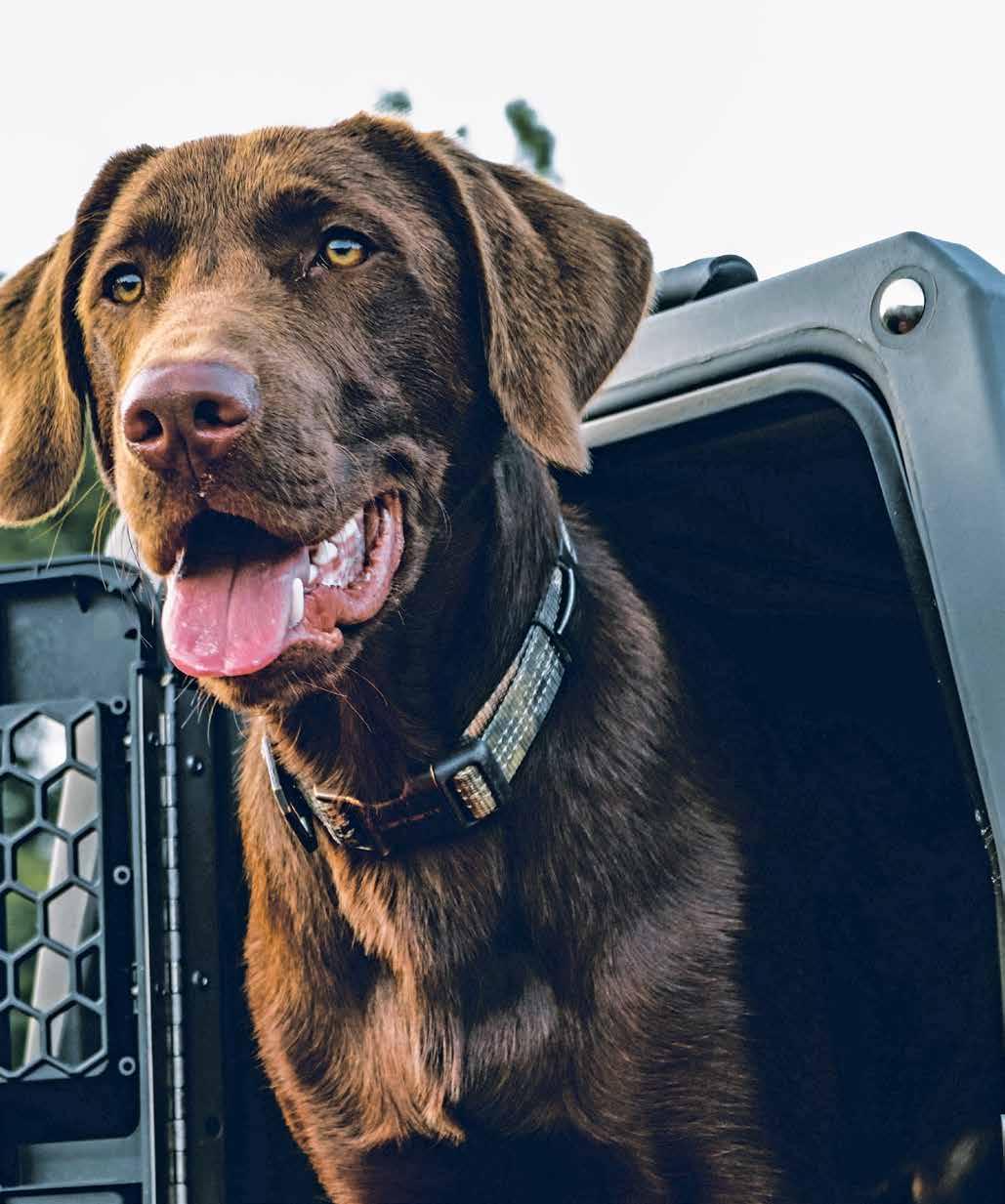

in the community and wanted to sponsor a class that promoted all riders.
Rebeca says she has seen riders returning to riding and the show ring. Whether riders are returning from college or returning to riding after having time off from having children, Rebecca wanted to sponsor a class that promoted amateur riders showing their own horses in a fun atmosphere. “We wanted to offer a new class to our community and customers. We really want to help them get back on their horses and get them back in the show ring,” Rebecca states.
Traditional Hunter Derby classes are open to professionals, and, at times, an amateur or young rider can be intimidated by the idea of competing against professionals. Many riders decide to have trainers show their horses in Hunter Derbies. Non-pro derbies are becoming popular with many shows and associations throughout the US. With more nonpro riders competing their own horses, devisions and classes like non- pro derbies give amateurs and young riders an attainable goal to work towards for future competitions.
By Lauren Abbott labbott@mshorsereview.comFranklin, Tenn., - Brownland Farm Horse Shows is pleased to announce the new $5000 Non-Pro Hunter Derby, Sponsored by Franklin Saddlery. The new Non- Pro Hunter Derby will be held during Brownland Farm Autumn
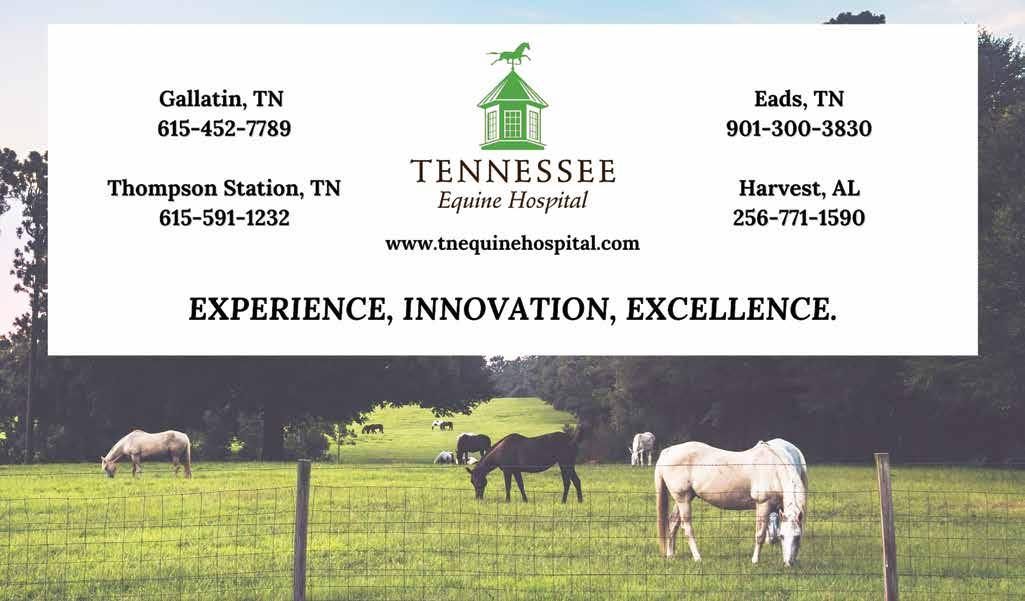
Challenge on Friday, October 13, Brownland Farm Autumn Country on Friday, October 20, and Brownland Farm Autumn Classic on Friday, October 27, directly following the $10,000 Hunter Derbies.
This class is specifically geared towards all non- pro riders and horses. Courses will be set at a height of 3 ft. to 3’3 ft. According to Rebeeca Renfro with Franklin Saddlery, they have seen a big growth in the Hunter/Jumper industry

Rebecca continues, “With our name change from Franklin Horse Supply to Franklin Saddlery, we knew we wanted to partner with Brownland Farm, and this year felt right with our new name. We want to market this Hunter Derby as friendly to all riders and most of all it be fun for our customers.”
Riders interested in more information regarding the $5000 Non-Pro Hunter Derby, sponsored by Franklin Saddlery, can visit Brownland Farm’s website: www.brownlandfarm. com. Prize lists and entry forms can be found on their website under their Horse Shows tab.
Section Sponsored By:


skin remains wet for an extended period of time or goes through wet-dry-wet periods under rainy weather conditions. Consistently damp skin cannot maintain the natural barrier it normally provides under dry conditions.
By Alicia Johnson alicia@mshorsereview.comWith the recent large amounts of rain here in the Mid-South, several moisture-loving bacterial and fungal ailments are making themselves known throughout the equine population: thrush, white line disease, and rain rot to name a few. Combined with the already hot and humid conditions summer brings, the extended rainfall creates the perfect conditions for opportunistic organisms
to thrive.
Rain rot, also known as rain scald, or dermatophilosis, is a skin condition in horses caused by the bacterium, dermatophilus congolensis. Acting as more of a fungus than bacteria, this microorganism creates a skin infection in your equine, causing painful scabs, lesions, and bald spots over your horse’s face, neck, chest, and topline. Dermatophilus congolensis is a common bacterium found on the skin of numerous mammals under normal conditions. However, it may become irritated when the equine’s
Rain rot is not something horse owners or caregivers need to worry about if the horse is simply left to air dry after a bath or has been rained on. The risk for this condition is associated with prolonged saturation of the skin combined with a route for the dermatophilus congolensis bacteria to enter the body. This can be via an open wound, scratch, or insect bite. Once the bacteria has entered the horse’s system, infection can set up.
If you suspect your horse has rain rot, contact your veterinarian if warranted, and give your horse a bath with an antimicrobial soap, such as those containing chlorhexidine, povidone-iodine, or benzoyl peroxide, as a good place to start. Lather up, shampoo, let your horse soak for about 10 minutes, then rinse. Remember to wear gloves; rain rot is zoonotic, meaning it can be transmitted from animals to humans. Gently remove loose scabs, as this will expose the infected skin, therefore, allowing direct exposure to
treatment. Address any open insect bites, minor abrasions, or lacerations with an antibacterial spray or ointment. Healing the bacteria’s points of entry will prevent further complications. Povidone-iodine ointment should also be applied to adherent scabs in order to soften them for future removal. Veterinarian prescribed antibiotics may be required in equines with severe rain rot who are not getting better with topical treatments.
It is important to note horses affected by rain rot should be isolated and any equipment (halters, lead ropes, feed buckets, water troughs, etc.) that has come in contact with them should be thoroughly disinfected. Any scabs or crusts removed from the equine’s body should be disposed of properly and not just thrown on the floor of the stall, barn, or in the pasture in order to prevent a source of reinfection. Prevention tactics include keeping your horse dry by providing shelter to get out of the rain if the horse chooses and removing any wet summer fly or stable sheets, thus allowing the horse to dry quickly after a rain. Of course, wash your hands thoroughly after handling or treating an infected horse.

The Mid-South heat and humidity is relentless on a good day. Here lately we’ve endured multiple excessive heat warnings, with dangerously hot conditions and heat index values over 110 degrees. This extreme heat and humidity significantly increases the potential for heat-related illnesses, heat exhaustion and heat stroke, particularly in those individuals working or participating in outdoor activities. We’re cautioned to limit time outdoors, drink plenty of water, and bring pets inside. But what about our horses: Can they be affected by the heat too?
The short answer is
YES; horses can also experience both heat exhaustion (stress) and heat stroke just like humans. Also, just like us, signs of heat-related illness can range from mild to severe and life-threatening, so it’s important horse owners and caregivers know and recognize them this summer.
Dr. Mark Akin, DVM, of Akin Veterinary Services states some horses are at a higher risk for heat exhaustion and heat stroke. These groups include older horses, overweight horses, metabolic horses (such as those with Cushings), horses who have trouble sweating (anhidrosis), horses being transported in the heat with poor trailer ventilation, and horses housed in poorly ventilated stalls.
Dr. Jennifer Dunlap, DVM, of Dunlap Equine Services has several suggestions to help ward off heat stress and heat stroke in your horses when the mercury rises to dangerous levels this summer. First, she recommends against using small water troughs and metal water troughs and go with rubber or plastic troughs, that are at least 100 gallons to keep the water cooler. She advises us to try to keep those in the shade as well. When smaller or metal troughs overheat in the sun, the water can get so hot it’s actually painful to the horse, and it will stop drinking. Also Dr. Dunlap states your horse should have access to a white salt brick at all times. “Horses lose a lot of sodium chloride through their sweat, and loss of electrolytes can slow gut
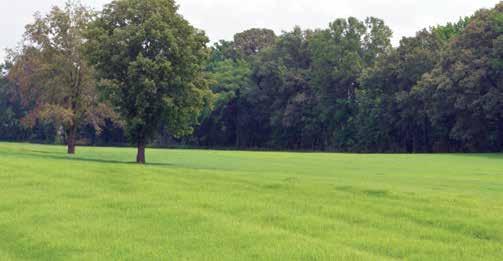
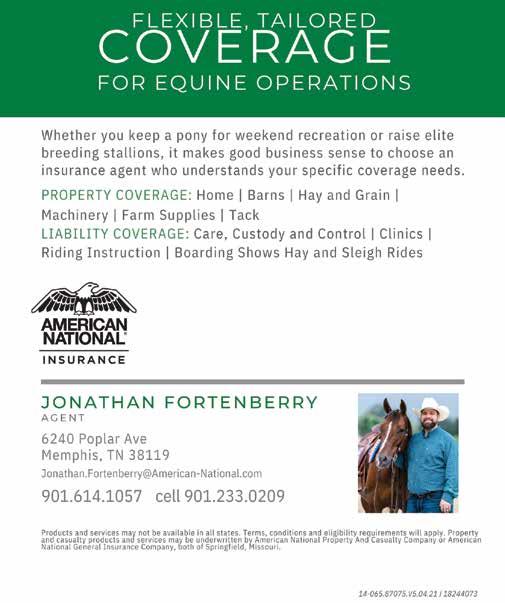
motility which can lead to metabolic colic, gut shut down, and overheating,” she explains.

If you have to haul, Dr. Dunlap says 2:00 AM is the time she prefers if it’s a long trip. Although this may not be the most convenient time to travel, the roads are cooler and there is less traffic to potentially heat the roads. Finally, Dr. Dunlap advises us to keep a rectal thermometer on hand. She and her staff use Vicks fast read digital thermometers. She says, “If your horse is huffing and puffing and its temperature is over 102, call your vet. Temperatures of 105 and above can be lethal.”
According to Dr. Akin, the following guidelines are a good rule of thumb when it comes to preventing equine heat-related illnesses. First, add the temperature (in Fahrenheit) and relative humidity. If this number is below 120, it’s ok to exercise and ride. If the number is between 130-150, it’s ok to exercise your horse, but make sure it is well hydrated and try to ride during the coolest part of the day, either early in the morning or late evening. If you get 170 or higher when you add the temperature + relative humidity, you must use extreme caution exercising your horse. “If you have a choice, don’t,” Dr. Akin states.
Dr. Akin provides us with a informational table on how to differentiate between heat exhaustion and heat stroke based on the clinical signs your horse is displaying.

According to Dr. Akin, “It is important to know that heat stroke is an absolute emergency, and the main goal is to get the horse’s core temperature down using a water hose, alcohol sponging, and medications given to decrease temperature (Banamine, Phenylbutazone, or Dipyrone). A lot of these cases require IV fluids. Moving to a cooler environment always helps.
A way to treat heat exhaustion includes cooling the horse off with a water hose (starting the process from the feet and slowly working your way up). Put a fan on the horse. Sponge off your horse using 3 gallons of water with 1 pint of alcohol added.”
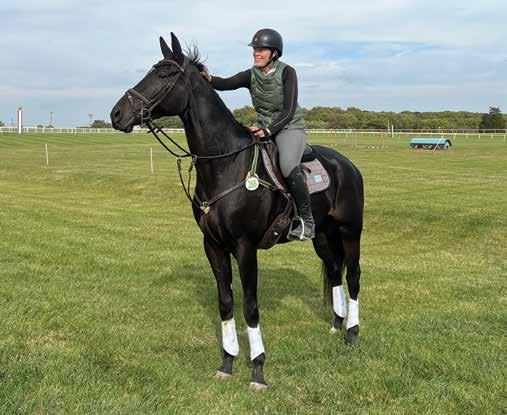 By Lauren Abbott labbott@mshorsereview.com
By Lauren Abbott labbott@mshorsereview.com
Panther Creek Stables, located in Nesbit, Miss., has hired Delaney Emerson as their new Head Eventing and English Riding Instructor. Delaney is a 2* USEA/USEF professional. She is moving to the area from the East Coast with plans to start on August 7, ahead of Panther Creek Stables’ Fall Training Sessions that kick off August 14.
As the daughter of riding instructor, trainer and intermediate eventer Joanne Emerson, Delaney has been on a horse since before she was born. Her childhood was primarily spent on the back of a pony, riding bareback through the pastures. Since then, she’s earned her C+ rating as a member of the United States Pony Club and has competed through the 2* and Intermediate levels of eventing.
From a young age, Delaney has understood and embraced the special challenges and immense rewards of training horses. As the resident “naughty-pony jockey,” she grew up producing horses and ponies for her mother’s lesson program. For more than 10 years, Delaney has been retraining Off the Track Thoroughbreds (OTTB) to have successful eventing careers, both as her personal horses and on behalf of children and adult amateurs.
Growing up in Portland, Oregon, Delaney had the opportunity to be a working student and catch-rider for five-star eventer Anna Collier of Vossenberg Farm and John Camlin of Caber Farm. In that time, she competed horses from the Novice level through Intermediate, earning numerous top finishes at every level with a variety of different horses. In addition to riding, Delaney has a passion and skill for coaching that she’s developed over the last 15 years. As part of her mom’s program, she taught lessons to kids, teens, and adults from beginners to those with upper-level aspirations and helped riders excel in a competition environment. Regardless of level, many riders have benefited from her supportive, knowledgeable, and intuitive teaching style.
In 2021 Delaney moved to the East Coast
and began working as the main rider for Caroline Martin Eventing, one of the top import and sales businesses in the country. There she gained invaluable experience riding a broad range of horses while also learning all aspects of the business.
Casey McKissock, Head Groom at Caroline Martin Eventing, says, “Delaney is super empathetic with the horses. She is very
smart, thinks very much about how she is doing things– you can put her on anything and she is going to teach them something.
The clients all loved her. She knows the discipline inside and out from her time working with different programs, and she is very well-versed in dealing with clients: students, boarders, clients, and horses.”
In addition to riding up to twelve horses

a day, this allowed Delaney the opportunity to compete with multiple horses through a range of levels and ride with many legendary professionals.
Former client, Audrey Lawton, says Delaney has an incredibly unique and adjustable skillset. “[Delaney] would successfully teach a timid, hopeful rider, and in the next hour be schooling a greenie over FEI questions.” Audrey remarks that Delaney’s calm but confident spirit helps both horse and rider build necessary skill along with the confidence needed to be successful in the sport of eventing.
In 2023 she transitioned to working for international five-star eventer Lillian Heard. This opportunity allowed time to focus on producing her own exciting upper-level prospect, a six-year-old OTTB named SD Pomme de Terre (Tatum). Tatum is a 17.1h dark bay OTTB that she purchased as a three-year-old and is carefully producing up the levels. They competed at the YEH Five-Year-Old Championships at Fairhill, Maryland, in October 2022 and have several successful Training level competitions under their belts. She is looking forward to a Modified start in 2023 and continuing to move up the levels in the coming years.

Mylissa Horrocks, Executive Director of Panther Creek Stables, says, “We are incredibly grateful that Delaney has chosen to continue her career in its next phase at Panther Creek Stables. First and foremost, we are impressed by her wisdom, kindness, and the creativity that she brings to teaching students of all ages and developing horses. Her competitive career on multiple horses speaks for itself, and we believe her record as a rider and trainer brings even more credibility to our growing mid-south Eventing community.”
Panther Creek Stables has their fall training schedule open for new, current, and past clients to schedule time with Delaney, along with their other trainers and instructors in an array of western and english disciplines.
A rider or parent who is interested in Eventing and English riding lessons can register for sessions with Panther Creek Stables at https://tinyurl.com/ridepanthercreek or reach out to info@panthercreekstables. com to learn more about Panther Creek.
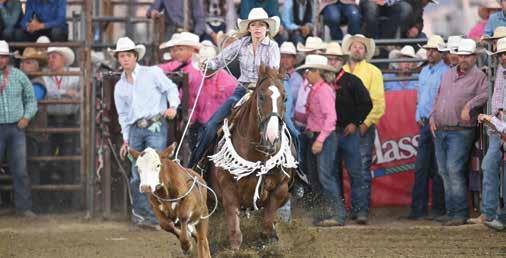
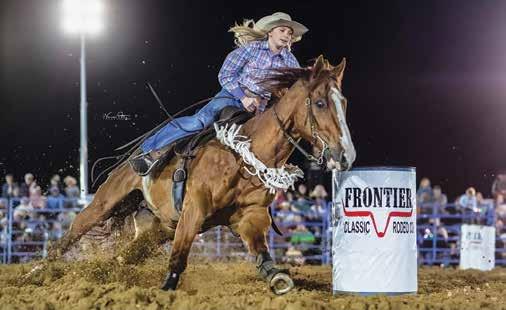

horses. I am very thankful to have their help and would not be where I am today without them,” she credits. Her gratitude toward everyone who helps along the way is evident: “I truly appreciate everyone that helps me; rodeo takes a village, and I am blessed by mine,” Avery states.
states.
By Alicia Johnson alicia@mshorsereview.com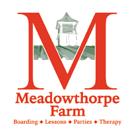
Sixteen-year-old Avery Wilburn from Red Banks, Miss., is no stranger to the National Little Britches Rodeo Association (NLBRA) circuit. Riding ever since she can remember, entering the rodeo world at just eight years old was a natural progression for Avery. Competing in the rodeo events, barrel racing, pole bending, and roping, this competitive young rider has been across the nation with her horses, Fly and Juice, posting some impressive times and making a name for herself.
Avery’s passion for rodeo is seen through her commitment to the sport. “I love rodeo. My favorite thing about riding is overcoming obstacles on different horses. Rodeo and horses have shown me satisfaction of working through situations and sometimes problem solving of all kinds with my equine partners,” she states. Being on the road and rodeoing with her family are other aspects of rodeo life that appeal to Avery. “I enjoy traveling with the horses and getting to meet new people from all over the nation and seeing the coun-
try while I am competing,” Avery explains. She also enjoys getting to compete with her sister, HK, who will be a freshman this year. When asked who has helped her get where she is today on her rodeo journey, Avery credits her parents (Dustin and Kristen Wilburn), her sister (HK), her trainers (Kindyl Scruggs and Zach Hall), and her vet (Dr. Mark Akin).
“My parents are always in my corner and haul my sister and me to rodeos all over the country. My dad helps us practice and is always there to do whatever we need, from our horses to keeping our arena at the house ready to ride in,” she elaborates. “I am thankful for our vet, Dr. Mark Akin, who keeps my horses feeling great. He cares about every horse and helps them to perform at their best,” Avery continues.

Of course, her trainers play an influential role in Avery’s competitive rodeo life as well. “I train for barrels with Kindyl Scruggs. She has been my mentor and coach for a long time. Kindyl always pushes me to be better and helps to keep my horses ready at all times. She is a sounding board for me at practice and during competitions,” Avery says. “I take roping lessons from Zach Hall in Lexington, TN. He helps me with my roping and roping
Although not human, there are two other very important guys in Avery’s life, without whom rodeo would not be possible at all- her horses. “My barrel horse, He Be Flyin’, “Fly,” is 14 years old and has the biggest heart of any horse that I have ever had the pleasure to ride. He is over seventeen hands and is quick as he is large. Fly and I have won several barrel races and rodeos together, and I am grateful for every run that he gives me,” Avery says. Helping her to qualify for big name rodeos, such as the Vegas Tuffest and Hooey Jr. Patriot, she continues on about Fly, “ He has taught me to ‘leave it all in the arena’ every single time we run. He has helped me to achieve so many goals, and I am forever grateful for all of his [effort] and the way that he pushes me to be better.”
Juice, her roping horse, is 17 but doesn’t know that according to Avery. “Everytime he backs in the box he is ready to work. He is honest and fast, and I am thankful to have him on my team. We qualified together for the NLBRA finals and the NHSRA High School finals in Gillette, Wyoming, this summer,” she
Going up against some of the best youth barrel racers in the nation to recently win the Short Go Barrels at the NLBRA Finals in Guthrie, OK, is just one of this young rider’s many accomplishments. Avery has qualified for some of the top youth rodeos in the country and considers it a privilege to compete against other elite rodeo athletes. This year, she and Fly were third in the world in barrel racing.
As for this ambitious young rider, Avery has goals, both short and long-term: “My short term goal is to do well in Vegas this year and in Fort Worth at the Jr. American. In five years, I hope to be finishing up college and pursuing my goals in rodeo. I am interested in a career in the equine sports medicine field in some capacity.”
When asked what important life lessons she’s learned along the way, Avery says, “Rodeo teaches me lessons every day, whether it is during practice or during competition. I have learned to be patient, enjoy the high points, and learn from the low points. It is not always easy, but it is always worth it. I am very thankful to be able to live the lifestyle that I do with my horses, and I give all glory to God. It is a lot of work everyday, but it is so rewarding when you see the fruits of your labor pay off.”
“There is something about the outside of a horse that is good for the inside of a man.” These are resounding words spoken by the eloquent Winston Churchill and later used in a quote by President Ronald Reagan. These words ring true for equine enthusiasts everywhere, but have recently become prevalent in the mental health realm of the medical profession.
Over the last several years mental health has gained some much needed recognition in the US. Conditions such as anxiety, depression, addiction, and trauma are being recognized more and more as medical disorders requiring intervention. Alternatives to medication and adjunct therapies are increasingly used to treat these and other mental health issues. Some of these solutions incorporate horses.
It is easy for horse owners, caregivers, and riders to see the multiple benefits of spending time with horses. The human-horse bond is a special connection. Engaging in grooming, riding, and caring for horses requires a level of selflessness, teamwork, and attentiveness. These qualities promote confidence, empathy, mental clarity, and self-esteem in those of us
who are not openly seeking mental health therapies; it’s only fitting that these principles be applied to those who are.
As more studies are done and more medical and mental health professionals realize the unique benefits, physically, mentally, emotionally, and chemically, horses can provide, more individuals across America are participating in equine-assisted services (EAS). Physically, the touch associated with petting and grooming a horse provides sensory and neuromotor stimulation. Concentration and self-awareness are just two of the many mental benefits EAS provides. Increased feelings of self-worth and positive outlook are seen emotionally, and chemically, stress hormones, such as cortisol, are decreased when participating in EAS. Founded in 1969, Professional Association of Therapeutic Horsemanship International (PATH Intl.) is the industry leader in mounted and unmounted equine-assisted services in the US. Offering membership, credentialing, and education, PATH Intl. “is committed to the advancement of equine-assisted services for lifelong impact,” as their website, pathintl. org, states. PATH Intl. helps connect participants and families to PATH Intl. programs, delivers education opportunities, and certifies professional service providers- most popularly the National Commision for Certifying Agencies (NCCA) accredited PATH Intl. Certified Therapeutic Riding Instructor Certification. Kaye Marks, Director of Marketing and Communications for PATH Intl., states, “Through the work of 813 member centers
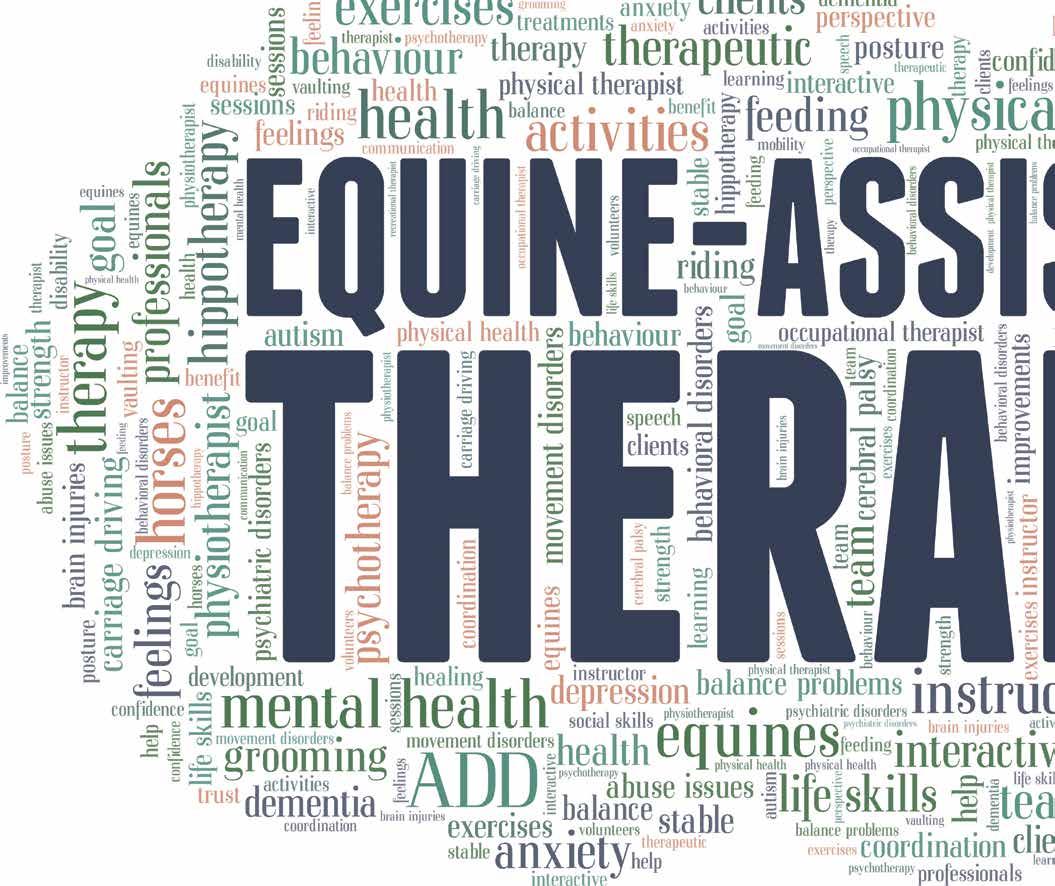
and more than 5,424 professionals credentialed through PATH Intl., 53,399 children and adults, including more than 5,900 veterans, are helped through a variety of equine-assisted services.”
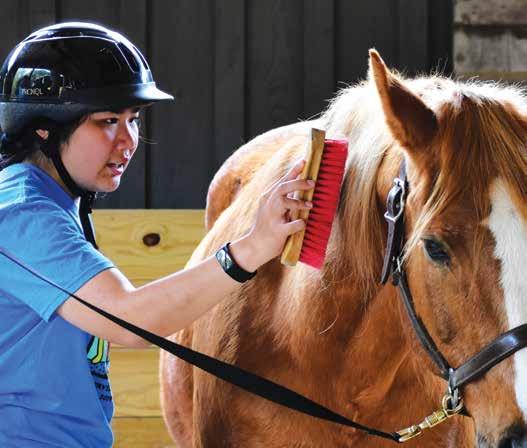

According to Kaye, “PATH Intl. leads the advancement of professional equine-assisted services by supporting its members and stakeholders through rigorously developed standards, credentialing and education. PATH Intl. adapts and grows with the industry by developing credentialing programs and education based on needs, such as its new equine-assisted Learning Credential. Centers adapt and evolve to changing community environments. Examples of that are adding programs for our aging population or for
veterans. The industry continues to grow by professionalizing the services provided as more of the public has learned about the power of interacting with equines as a way to help individuals reach their health and wellness goals.”
A very important aspect that sets PATH Intl. apart in the industry is their commitment to veterans. “Veterans of any age, branch, war or area of conflict can benefit from the program,” according to pathintl.org. PATH Intl. is devoted to “serving those who serve,” and “the goal of PATH International Equine Services for Heroes is to make mounted and unmounted EAS available to any veteran or military personnel within or near their home communities,” the website states. From therapeutic horsemanship, such as riding and driving, to psychotherapy and physical therapy incorporating horses to strengthen both the mind and body, PATH Intl. programs provide veterans with numerous physical and psycho-social benefits.
Kaye explains individuals are able to become PATH Intl. certified through their credentialing programs. A PATH Intl. Certified Therapeutic Riding Instructor (PATH Intl. CTRI®) certification is available. This is a breakthrough in the industry, as “PATH Intl. CTRI®s hold the first independently-accredited certification in the equine-assisted services industry and the equine industry as a whole. That has been the culmination of ten year’s work, and it’s very important for the public to know as they seek a provider to work with. Receiving accreditation for the PATH Intl. Certified Therapeutic Riding Instructor (PATH Intl. CTRI®) certification from the NCCA is an exciting milestone for the equine-assisted services industry,” Kaye states.
Not only are equines being partnered with those individuals facing mental health challenges, they are also being increasingly incorporated in physical and occupational therapy, speech language pathology, psychology and counseling, and outdoor recreation therapy. These treatment plans are led by licensed medical providers. EAS are beneficial for many populations, from individuals with autism, to those struggling with addiction.
Psychotherapy and counseling incorporating equines are experiential treatment methods (those using activities to facilitate healing) that utilize the bond between people and horses to precipitate both emotional and physical healing. Based on individual needs, different types of therapy may be used. In fact, those recovering from substance abuse specifically benefit from the unique and powerful lessons incorporating horses in therapy provides, including learning how to trust both themselves and others, self-reflection, and learning new coping behaviors. Studies have shown sessions involving horses can be more effective than traditional therapies in treating those with substance dependencies.
Not to be forgotten, family members and close friends of those seeking help can benefit too. Focusing on being present in the moment with the equine helps those struggling with the secondary trauma of a loved one’s suffering become more aware of their feelings, behaviors, and reactions. Learning through experiences, instead of talking through feelings and thoughts, has proven beneficial as both clients and their loved ones can express themselves through interactions with the horse. The non-judgmental horse and therapeutic bond created can be especially valuable for these individuals.
Horses can be an asset in overcoming challenges in all walks of life. From spending time with your horse at the barn, to therapies directed at overcoming specific obstacles and promoting health, Winston Churchill again said it best: “No hour of life is wasted that is spent in the saddle.”
“Through the work of 813 member centers and more than 5,424 professionals credentialed through PATH Intl., 53,399 children and adults, including more than 5,900 veterans, are helped through a variety of equine-assisted services.”
- Kaye Marks, Director of Marketing and Communications for PATH Intl.

Mid-South horse owners and caregivers who keep equines stalled for any amount of time are probably familiar with the unpleasant odor produced by the ammonia excreted in


equine urine. However, most of us do not realize ammonia is more of a threat than just a bad odor; it can pose a serious health risk for your horse’s respiratory system.
According to sweetPDZ.com, even low levels of ammonia can precipitate upper respiratory illness in your horse, including a risk for pneumonia, heaves, COPD, and other respiratory issues. Foals are especially susceptible to these respiratory illnesses molds and fungi can create when left
exposed to damp, ammonia-soaked stall bedding. Many products are available commercially that can mask this odor, but Sweet PDZ is the only one that removes, neutralizes, and absorbs the ammonia, creating a healthy, fresh stall environment you and your horse can enjoy.
What sets PDZ apart from other bedding refresher products is the “Z”, or zeolite, in PDZ. A naturally occurring mineral found in the earth in the western US, formed by the reaction of volcanic ash and an alkaline water source, zeolite, when under pressure, takes on a porous 3-D structure. This framework is important, as now the zeolite can act like a sponge, absorbing and capturing microscopic ammonia particles.
Tom Menner, President of PDZ Company, LLC, believes his product has surpassed all other stall refreshers and deodorizers because of its performance. “Sweet PDZ does exactly what it claims: it neutralizes and removes ammonia and other toxins from your horse’s bedding. It is not just hiding or masking the odor,” he states.
In addition to Sweet PDZ Horse Stall Refresher, PDZ Company also produces Healthy World Pet Deodorizer, which is safe and very effective for use with goats, dogs, cats, rabbits, and nearly every other type of small critter species that is kept indoors or outdoors. PDZ Company also collaborates with Lucerne Farms with their Koop Clean Chicken Bedding product, which is becoming a fast favorite with backyard chicken keepers coast to coast.
Founded in 1983 by Tom’s father-in-law, Wally McGregor, Sweet PDZ is a tightly held, family-owned business that is focused on the health of your equines and other pets by promoting health-driven, all-natural animal habi-
tat hygiene. Having a “lean and mean,” as Tom calls it, workforce, Sweet PDZ has overhauled the equine bedding deodorizer industry during the past forty years. In the mid80’s, PDZ was really ahead of its time, according to Tom. Lime was the only alternative for moisture removal at this time and was preferred because “It’s what Dad and Grandad always used.”
In this aspect, Sweet PDZ was really a “pioneer during its inception in the early 90’s,” Tom explains. Proving why PDZ was better than the traditional mining mineral, lime, and thus, more expensive, was a real challenge in Sweet PDZ’s early years. Over a decade, as more and more customers began using Sweet PDZ and realizing its superiority as an actual odor neutralizer, not just a drying agent like lime, the company was finally able to break through that lime-only mentality.
Sweet PDZ’s “sustained power and leading position stemmed from establishing and maintaining a presence through advertising, marketing, and trade shows” early on in the company’s history, Tom states. Although now available online through Chewy, Amazon, and other retailers, Sweet PDZ sells most of its products in brick and mortar retail, such as TSC and regional agricultural farm supply chains. Notably, Tom and his team realize “the value of family-owned, independent farm and feed stores and how critical they are to the longevity of the brand.”
The development of the PDZ brand stands as a true testament of the Sweet PDZ Company. “Other zeolite-based products from other companies have come and gone,” Tom says, “but when we were the first zeolite company in and the first to do it right, we’ve been able to face off against those competing elements and remain first.”
There is an ongoing desire to grow and expand the brand and product line at Sweet PDZ. As mentioned, the company recently collaborated with Lucerne Farms, a family-owned hay growing operation, of Fort Fairfield, Maine, “to make a
truly unique and superior performing chicken bedding for backyard chicken farmers” called Koop Clean, as the website states. Not only does Koop Clean provide odor neutralization and moisture absorption, the calcium content of the product makes it a safe and beneficial grit as well. Sweet PDZ remains committed to producing bedding enhancement products that promote animal health.
There are other benefits to using Sweet PDZ in your stalls, trailer, coops, and litter boxes than just the premium, pure quality of the zeolite contained in their products. Sweet PDZ’s zeolite is a green earth mineral that is non-toxic, organic, recyclable, and compostable: a truly full-circle

product. In addition, Sweet PDZ is 100% American-made, from the zeolite sourced in the American West to the packaging of the products. Perhaps the most beneficial aspect of using Sweet PDZ in and around your barn is knowing you are promoting good barn hygiene and respiratory health for your equines.
For more information on how to use Sweet PDZ products, videos, where to buy, and testimonials go to www.SweetPDZ.com.
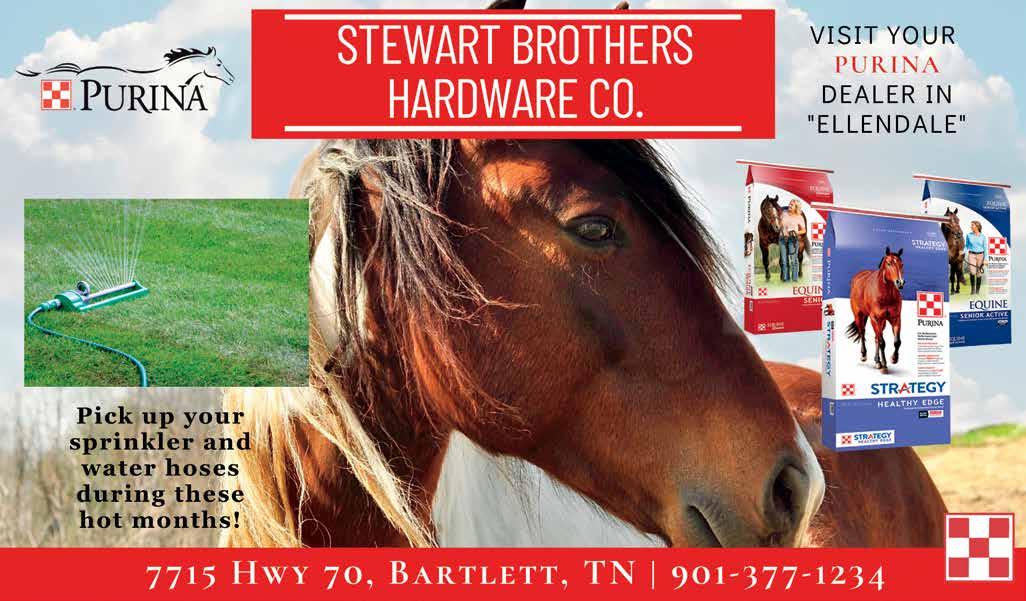

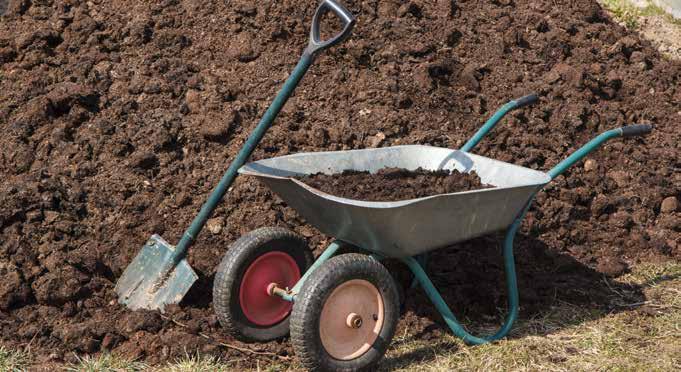
ki, MS, of the UT-TSU Shelby County Extension Office, composting will lead to decreased pathogens, parasites, and flies in the compost, which means less in and around your barn. She points out studies have shown that compost heat cycle temperatures over 130 F degrees will kill most pathogens and fly larva laid in manure, plus create challenging breeding conditions for flies. These high temperatures in compost will also kill most weed seeds that have survived digestion in the equine as well. As it breaks down, compost will have less of a manure odor than the manure pile itself. Plus, “Applying your finished compost to a pasture that will hold equines or other livestock is safer than applying manure only,” Agent Szemplinski says.
Unfortunately, there are drawbacks to manure composting as well. First, manure has an overall lower nutrient concentration when compared to commercial fertilizer. “Percent nutrient by weight in manure is rarely over 10%, while commercial fertilizers have over 40% in nutrients,” Kyla states. Also, composting is time consuming and labor intensive. The pile will need to be mixed or turned weekly to provide proper aeration, so thought must be given to proper space and equipment needed to compost.
By Alicia Johnson alicia@mshorsereview.comIf you ride, own, or care for horses, you probably deal with this not so glamorous aspect of horse life every day: manure management. Most of us have a manure pile near
the barn that is continually growing every single day and serves absolutely no purpose. However, composting manure is a great way to create your own super-charged fertilizer for flower beds and gardens while diminishing that unsightly manure pile at the same time. There are many benefits to composting manure besides creating your own fertilizer. According to Kyla Szemplins-
Uniformity can be an issue in manure composting as well, which can lead to under or overapplication of nutrients, Kyla points out. She says, “You cannot be certain that the first load of manure you haul away has the same nutrients as the last load.” Finally, thought must be given to any supplements the equines are given. Medications and chemicals in supplements end up in manure, which can potentially be harmful to the water table or detrimental to plant growth- the
opposite of the goal of manure composting. So how do you turn your useless pile of manure into resourceful compost? Four elements must all come together: oxygen, moisture, and a proper carbon to nitrogen ratio. Oxygen is imperative in the composting process; it must be present for decomposition to take place. Turn your compost pile or bin anywhere from three times per week to a few times per month (smaller bins turned by hand will be easier to turn more often than a large compost pile requiring a front-end loader). Aerating the pile by turning is important, as the more you turn, the quicker you have finished compost.
As far as moisture goes, your compost pile should be somewhere in between wet and dry. Wear a glove, and squeeze a handful. It should be damp, yet hold its shape, and leave moisture on your gloved hand, but not wringing wet. If the pile is too dry, add water; if it’s too wet, try adding dry materials like straw or leaves. Keeping your compost pile covered with a tarp should maintain the proper moisture level needed.

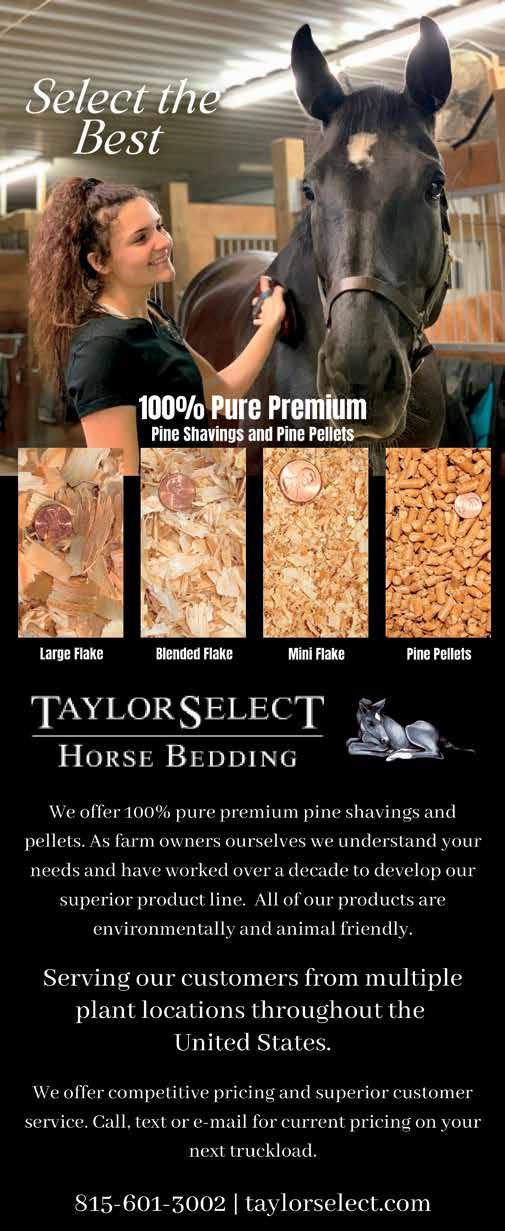
Carbon and nitrogen are important in composting, as they fuel the fungi and bacteria that are actually breaking down the manure. You want mostly carbon with just enough nitrogen in your compost pile (ideal ratio is 25-30:1). While there’s no way for most of us to measure this at home, you will notice if there’s too much nitrogen present as you smell the unpleasant odor of ammonia gas that accompanies excess nitrogen. Adding
leaves to your compost pile will give it more carbon, and nitrogen can be added by mixing in grass clippings and straw.

Agent Szemplinski wants you to know:
“Aged manure is not composted manure.” There are three temperature phases a compost pile must complete in order to be finished. Kyla recommends monitoring your compost pile’s temperature with a 16” thermometer and taking the temperature at multiple locations throughout the pile. First, there is the warm-up phase. This phase only lasts a few days to a month, until the internal temperature reaches 105 F degrees. The preexisting microbes become active and initiate the breakdown process in this stage. The second phase is the hot composting stage, in which the microbes really work hard. It can last 4-6 months, and the temperature must be maintained in the 110150 F degree range, as these are the optimal temperatures for productive microbes. Cool curing is the final phase. Most compost piles can cure for up to a year. The temperature should lower below 105 F degrees, and worms, fungi, insects, and other organisms will provide stabilization during this time. When your compost is finished, it should look and smell like rich, earthy soil, have a uniform appearance, and crumble in your hands. You’re now ready to use the compost as a natural fertilizer both indoors and outdoors. Consider composting as a resourceful way to manage manure at your barn.
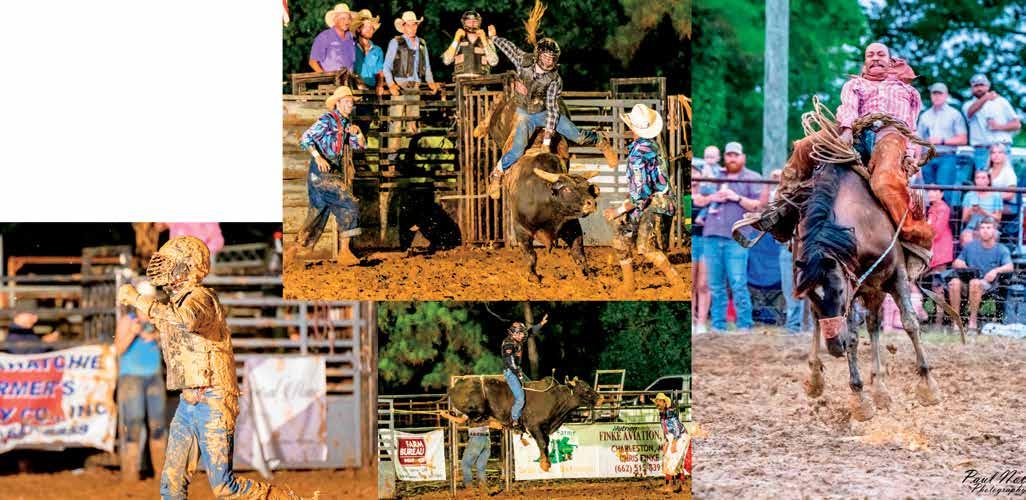
 Content and Photography by Paul Nolte
Content and Photography by Paul Nolte
The 6th Annual Freestate Bull Blowout was held on Saturday, July 8th, in Charleston Miss. The rain stopped earlier in the day, but the fairgrounds were still very muddy. For the first time, the event added a Ranch Bronc division which had 10 entries. Ranch bronc riding is different from regular bronc riding in that the rider uses a regular saddle and can use their free hand to help stay on. For the bull riders, Corey Russell had the overall win with two good rides. His winning ride ended with him covered in mud, but he was able to go home with the money.
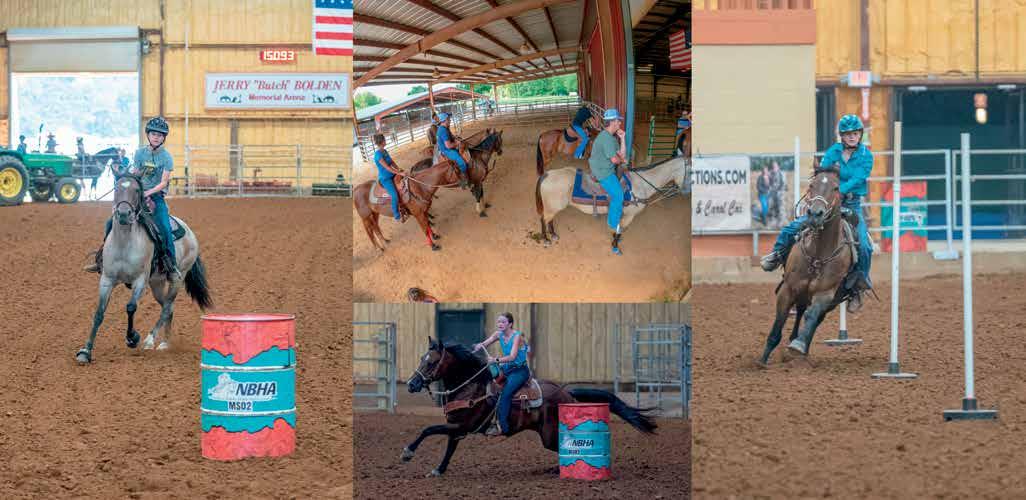

MIXED GRASS SQAURE BALES: $6.50
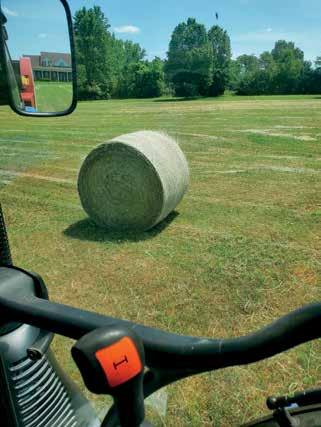

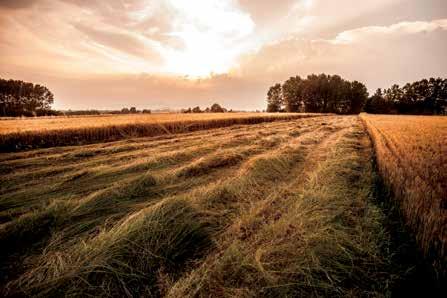
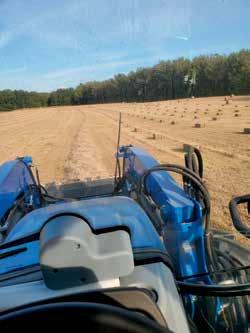
MIXED GRASS ROLLS, 4X5 NET, WRAPPED: $60
BERMUDA $9.50 ALFALFA $12
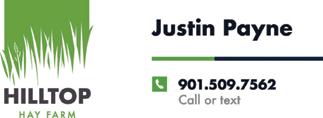
Lakeland 14 stall barn for rent. Wash rack, feed/tack room and hay storage. $1,500/month for the entire barn or $125/month per stall (3 stall minimum). Non public use only.
Nice barn apartment for rent: $700 a month. 901 338 9686.
Lakeland 3 acre pasture with 3 stall barn for rent. 2 horses maximum. $250/month. 901 338 9696
Three Silos Training: Developing your horse for its specific job; helping set up a successful partnership between horse and rider. Expertise in lead change, collection, suppleness, balance, & lightness to aids.

Collierville, Tn. $1,200/month, includes full care & turnout. Suzy Hoyt 901-4971131.
SADDLE & TACK REPAIR:
Van’s Leather Craft. Custom gun holsters, belts, knife sheaths, photo albums etc. For sale: Used & new saddles and horse health products.
Off Hwy. 309, 1909 Bubba Taylor Rd., Byhalia, MS. (662) 838-6269.
Hillside Stables – Bill and PK Theobald have been professionally caring for horses for 23+ years. Spend time with your horse while full board covers all the daily chores. Horses fed 2x daily, stalls cleaned daily, same sex turn out. $450 per month. Happy, healthy horses – friendly, knowledgeable people. Covered arena, round pen, lighted outdoor riding area and wooded trails! Check us out on Facebook, website www.HillsideStables.wordpress.com or call 901/857-7500.
Boarding at beautiful WHITE OAK FARM: Located on 40 acres in northeast Shelby County at 10023 Rosemark Rd.
Fullboard $450/month. Board includes stall cleaning/shavings and morning/evening feedings.
Numerous amenities include large stalls with windows, stall fans, heated waterers, turnout pastures, lighted outdoor arena or inside barn riding, crosstie area with hot/ cold wash rack, fly spray system, Bermuda hay grown and baled onsite. Gated facility with owners and farm manager living on property. Call Sammy 901-8333075.
Nice friendly barn located in Cordova/ Memphis, TN. Located 15 minutes from Germantown, Bartlett, East Memphis and Shelby Farms.
Owners are on site. Retired or Aged horse’s welcome!
High dry barn, trails, and small arena. Call Rob (901) 359-3341
Premier Horse Boarding in Fayette county. Full/pasture board. Retired horses are welcome. Private pastures, grained 2x daily w/senior feed & Bermuda hay. All weather outdoor arena w/lights. 50+acres of riding, lots of additional amenities. Look us up on FB. Blues City Warmbloods Dana 901331-3500
Training your horse, the correct & gentle way. Desensitizing & teaching respect on the ground; trust without fear. We mostly use the Buck Brannaman training methods. Exc. References. Grained 2 x day w/ Bermuda hay & private pastures. $800 Mo. Michael Garner 901-857-8060 Blues City Warmbloods on FB
Horse-drawn carriage drivers needed in Downtown Memphis. We will train. No experience necessary. (901) 4962128. uptowncarriages.com
4x5 Hay Rolls for sale: Composted top quality mixed grass. Text or call Suzy 901-497-1131
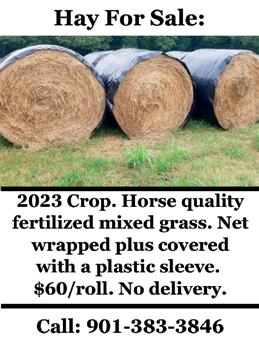
2 yr. old White Calico Female: Fixed, Rabie Shots, Flea & Worm treatment. Tabby Male: 3 mo. old kitten. Shots/ flea & worm treatment. 3-3 mo. old kittens. Black, Black & White, TabbyFlea & worm treatments. Semi Friendly, Sweet Nature-Great Hunters! Free to good home 901-896-9465. Somerville Tn.
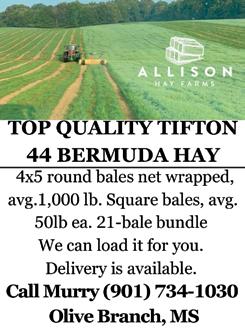
BOLIVAR , TN 38008 14840 HWY 18 SOUTH 731-658-3931




HOURS: M-F: 7:00AM - 4PM



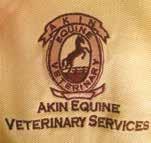

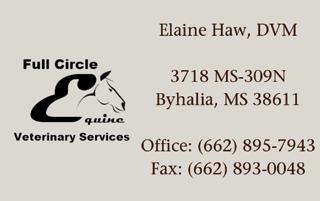


MARK A. AKIN , DVM Practice limited to Lameness and Performance Issues associated with the Equine Athlete



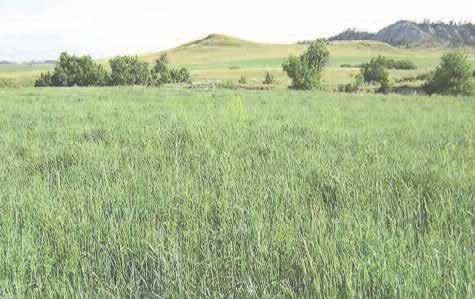
By appointment only : 601-813-1128 cell 901-854-6773 (85-HORSE) MAkindvm86@gmail.com


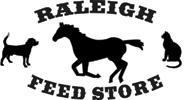

Starkville, MS (662)325-0508; (662)3259350 https://mshorsepark.com/events
Aug. 10-13: Meagan McCain Memorial Barrel Race
Roane State Community College, Harriman, TN http://www.roanestate. edu/?6497-Events-Calendar
Aug 5: Barrel Race
Aug 12-13: Jesse Adcock Memorial
Aug 18-20: South East Ranch Horse Series
Cowboy Church. Info: facebook Wynne, AR. CR 381. Three Trees Cowboy Church. Info: threetreescowboychurch. com; facebook Collierville, TN. 1656 N. Col-Arl. Rd. Old West Special Trails. Sunday 10:30 am. Cordova, TN: Houston Levee Cowboy Church: Sundays at 4:30 pm at Houston Levee Community Center, 1801 N. Houston Levee Rd. in Cordova, followed by Open Arena at Circle C Arena next door behind Calvary Church. Visit HoustonLeveeCowboyChurch.com or call 901-3553204 for more information.
Aug 12: MS05 Lincoln County Civic Center @ 7:00pm (Brookhaven, MS)
Aug 19: AL03 Alexander City Horse Riding Club @ 1:00pm (Alexander City, AL)
Aug 19: KY01 Trigg County Complex @ 5:00pm (Cadiz, KY)
Aug 19: KY03 Grayson County Saddle Club @ 6:00pm (Leitchfield, KY)
Aug 20: AR01 Sanders Arena @ 7:00pm (Pineville, KY)
Aug 25: TN04/TN06 Tri-State Exhibition Center @ 2:00pm (McDonald, TN)
Aug 26: AL05 Bar T @ 10:00am (Brundidge, AL)
Aug 26: KY05 Pendleton County Fairgrounds @ 1:00pm (Falmouth, KY)
@ 5:00-10:00pm (Wiseman Park)
http://wthja.com, www.brownlandfarm. com, www.mthja.com, www.ethja.org
www.gulfcoastclassiccompany.com
Aug 26: No Frills 3 (Brownland Farm)
Aug 26: CTDA Dressage Schooling Show (Brownland Farm)
Aug 27: No Frills 4 (Brownland Farm)
Aug 1-6: Kentucky Summer Classic (KY Horse Park)
Aug 8-13: USEF Pony Finals (KY Horse Park)
Aug 5: Windhover Farm V (NR)
Aug 6: Windhover Farm VI (NR)
Murfreesboro, TN www.mtsu.edu/tmc
Aug 4-6: Volunteer State Pinto Circuit
Aug 11-13: Ole South Dressage Shows
Aug 17-20: TNRHA Smokey Mountain
Reins
Aug 25-27: 2023 TN IBRA State Finals-
Cleveland, TN 423-476-9310 www.tristateexhibitioncenter.org
Aug 5: Rodeo
Aug 11-12: Centerline Show Series
Aug 18-19: NRH State Show
Aug 25-26: NBHA
Tunica, MS (662)363-3299 https://tunicaarena.com/
Aug 11-13: J X 2 Team Roping
https://www.ponyclub.org/Calendars/ Events.aspx
https://midsouth.ponyclub.org/calendar/ https://deepsouth.ponyclub.org/ https://middletennessee.ponyclub.org/calendar/
Aug 5: Kentucky National Examiner Clinic (Lexington, KY)
Aug 5: XC Open Schooling (Percy Warner Park)
Aug 12-13: Games Rally
Aug 12: XC Open Schooling (Percy Warner Park)
Aug 17: Unmounted Meeting
Aug 19: Hillsboro Hounds Puppy Show (Lynnville, TN)
Aug 19: XC Open Schooling (Percy Warner Park)
Aug 26-27: Certification Day (Date not final - Percy Warner Park)
Aug 26: XC Open Schooling (Percy Warner Park)
http://extension.msstate.edu/4-h
https://ag.tennessee.edu/AnimalScience/ UTHorse/Pages/Shows.aspx#AnchorTop
Aug 19: State Junior Meat Goat Show
Sarah, MS. 548 Bryant Lane. Bryant Lane
FIRST SATURDAY: Houston, MS. Triple E Livestock. Tack 10 am. Horses 2 pm. Info: A.J. Ellis 662-401-9760; 662-2662808
FOURTH SATURDAY: Holly Springs, MS. Marshall County Fairgrounds. Marshall Co. Livestock Exchange. 662-3179021
FIRST, THIRD, FIFTH FRIDAY: Woodbury Livestock Market, 2403 McMinnville Hwy. Tack 5:30 p.m.; Horses 8 pm. Info: (423) 447-8119
FIRST SATURDAY: Hattiesburg, MS. T. Smith Livestock Sales. Tack 10:30 am. Horses 1:30 pm. Info: 601-583-0828
SECOND SATURDAY: Gleason, TN. West TN Auction Barn. 330 Fence Rd. Tack 5:30 pm. Horses 8 pm. Info: Chucky Greenway 731-571-8198
SECOND & FOURTH SATURDAY: Carthage, MS. Farmers Livestock Marketing. Tack 1 pm. Horses 5 pm. Info: 601-2677884; 662-317-9021
Aug 26: Jeremy Steinburg Riding Clinic kentuckydressageassociation.com
http://www.nbha.com; https://ibra.us/ shows/US-TN-WEST
Aug 5: MS07 Lauderdale County Agri Center @ 2:00pm (Meridian, MS)
Aug 5: KY02 Bluegrass Saddle Club @ 2:00pm (Shepherdsville, KY)
Aug 5: TN07 Flying B Ranch @ 6:00pm (Midway, TN)
Aug 5: KY03 Buck Creek Sportsman Club @ 7:00pm (Smiths Grove, KY)
Aug 5: KY05 Grant County Fairgrounds @ 7:00pm (Williamstown, KY)
Aug 8: KY05 Boone County Fairgrounds @ 7:00pm (Burlington, KY)
Aug 12; KY02 Central Kentucky Ag Center @ 8:00am (Liberty, KY)
Aug 12: MS03 Rankin County Multi-Purpose @ 1:00pm (Brandon, MS)
Aug 12: KY03 Marrowbone Arena @ 6:00pm (Burkessville, KY)
Aug 12: KY07 Greenup County Fairgrounds @ 6:00pm (Greenup, KY)
Aug 12: KY01 Fredonia Valley Riding Club @ 6:00pm (Fredonia, KY)
Aug 26: MS03 Rankin County Multi-purpose @ 1:00pm (Brandon, MS)
Aug 26: TN04/TN06 Tri-State Exhibition Center @ 2:00pm (McDonald, TN)
Aug 26: MS04 Montgomery COunty Coliseum @ 6:30pm (Winona, MS)
Aug 26: KY03 Cross Country Saddle Club @ 7:00PM (Glasgow, KY)
Aug 25-26: 2023 Tennessee-West IBRA State Finals/IBRA Super Show Location Final Show (TN Miller Coliseum)
www.mid south dressage academy.org, www.TNDressage.com, www.tvdcta.org, kentuckydressageassociation.com, https:// sites.google.com/view/greystonedressage/ home, https://www.flightlinedressageshows.com
Aug 11-12: CTDA USEF/USDF Recognized Show: Ole South Prelude/Ole South (TN Miller Coliseum)
Aug 13: CTDA USEF/USDF Recognized Show: Ole South Classic (TN Miller Coliseum)
Aug 26: CTDA Schooling Show (Brownland Farm)
Aug 19: KDA 16th Annual Schooling Show (Masterson Station Park)
Aug 2: Scenic in the City Midweek Dressage Show - USEF/USDF (Wills Park Equestrian Center)
Aug 19-20: Dressage by the River IIUSEF/USDF (River Glen Equestrian Park)
http://useventing.com; www.river-glen.com
Aug 4-6: River Glen Summer H.T. Aug 19-20: Ocala Summer H.T. II
https://nwha.com, www.sshbea.org, www. walkinghorseowners.com, www.shobaonline.com
Aug 19: Moore County Horse Show @ 5:00pm (Lynchburg, TN)
Aug 3: Southern Regional 4-H Horse Championships @ 1:30-9:00pm (GA National Fairgrounds & Ag Center)
Aug 5: BPWHA Horse Show - Georgetown
Aug 12-13: WHOA Show Series (KY Breeders Fund Eligible) @ 8:00am-5:00pm (Edmonson Fairgrounds)
Aug 31: TN State Saddle Club State Show
Aug 12: Silent Run Show Late Summer I (NR)
Aug 13: Silent Run Show Late Summer II (NR)
Aug 15-20: Bluegrass Festival (KY Horse Park)
Aug 23-27: KHJA (KY Horse Park)
Aug 26-27: Tennessee Valley Hunt Club Horse Show (Talbot, TN)
www.apha.com, www.missphc.com, tphconline11.homestead.com, www.volunteerstatepintoorg.com
Aug 4-5: Sweepstakes Circuit Show #1 (TN Miller Coliseum)
Aug 5-6: Sweepstakes Circuit Show #2 (TN Miller Coliseum)
Aug 26-27: Painted Peach (Perdue Arena)
www.pfha.org, www.tvpfha.com
Aug 11-13: Last Chance Show (Ronald Raegan Equestrian Center)
Aug 19-20: Southeast Summer Championship (Great Smokey Mountain Expo Center)
Aug 19: Last Chance Show (World Equestrian Center)
www.franklinpolo.com
Aug 18: Hap & Harry’s International Cup (Tractor Supply Co. Arena at the Park at Harlinsdale Farm)
www.tqha.org, www.mqha.org, www. wtqha.org, www.midsouthquarterhorse. com, facebook Mid-South Breeders
Aug 4-6: AQHA Summer Palooza (Rainsville, AL)
www.americanranchhorse.net, www.volrha. com
Aug 11-13: Ranch Horse Association of Kentucky (Frankfort, KY)
Aug 18-20: Southeast Ranch Horse Association (Harriman, TN)
Owning livestock can present all sorts of challenges. Fortunately, your American National agent is not only just down the road ready to help, but an expert in farm and ranch insurance matters. Scan the code below and get a FREE risk assessment to make sure you’re adequately covered and to help guide you through ways to lower your risk and rates.

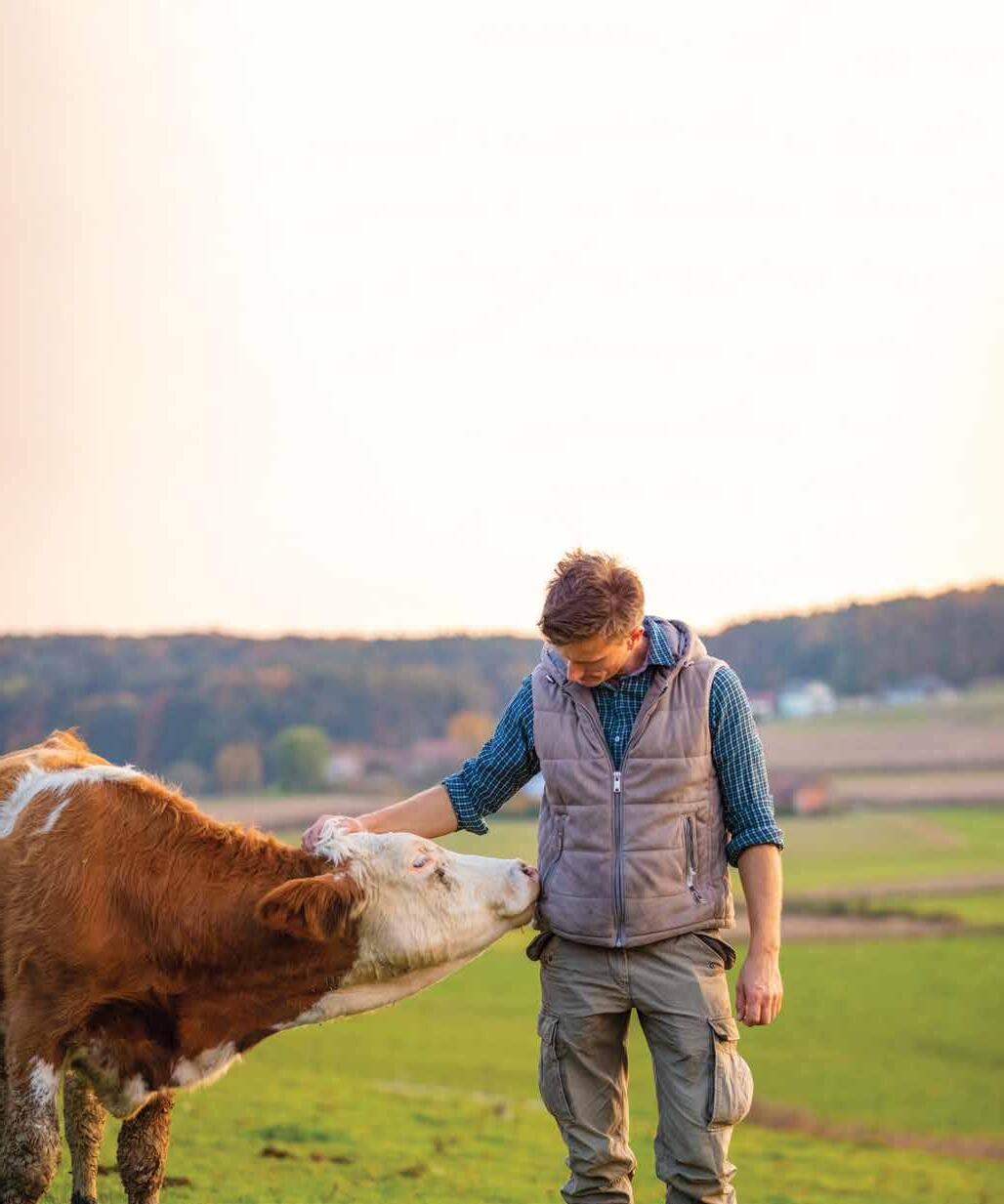
Our agents have your back to help you when your livestock goes looking for greener pastures.
